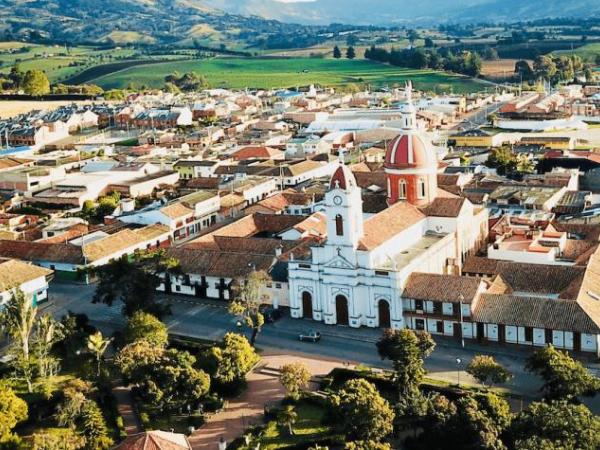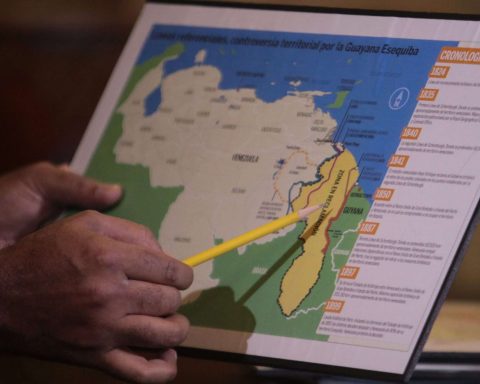The Anif Center for Economic Studies put the magnifying glass on a draft legislative act that is moving in the Congress of the Republic and that has already traveled more than half of the way required by national legislation, with a view to increasing the transfers that by obligation the Government must make to the departments and municipalities, within the principle of regional autonomy that has been talked about so much lately.
This is Legislative Act No. 18 of 2024, which has already achieved four of the eight approvals required to become law and in its articles seeks to generate a change in the General Participation System, with which the money that reaches the regions, so that the State must allocate a greater amount of resources, as established more than 30 years ago in the 1991 Constitution.
Also read: Costs and bureaucracy, two barriers that keep labor informality stagnant
According to Anif, if this project is given the green light, a shirt would be created of strength for the Central Government, which runs the risk of running out of money for anything else, taking into account the fiscal burdens it already faces due to issues such as subsidies and the items that are transferred to the health and pension systems.
In dialogue with Portafolio, José Ignació López, president of Anif, maintained that the initiative in progress will result in a substantial increase in transfers, which are currently calculated based on the growth of current income (ICN) of the previous four years, but they are not tied to a fixed percentage.
Plenary of the House of Representatives in the Congress of the Republic.
Pedro Vargas
“It is very important that the country deepens decentralization and that would imply both having more resources in the regions, as well as a higher level of income and more autonomy. That said, it must be highlighted that what this legislative act is doing is tying the transfers of the General System of Participation to a fixed amount of the current income of the Nation,” said López.
Given that another of the effects that Anif warns will occur with this project is a complete budgetary inflexibility, which eliminates the margin for the Government’s social investment and its operation, the President of the Center for Economic Studies points out that it is necessary to first give a debate on the powers of regional entities and the way forward to carry out a correct restructuring of income and expenses.
“We do an illustrative exercise on this case and it is what happens if today, in 2024 we were already in the new system or under the new formula. Only the inflexibility of the participation system, pensions, interests and future validity would be 95% of the budget, meaning that the Government would not have resources for its operation and basically all Executive officials would have to be fired,” he added.
More news: Fiscal rule: point of contention with the financing law
That said, Anif is forceful in asserting that in practice, this reform would lead to the bankruptcy of the Colombian State and asks that the implications that it may have for the economy be carefully analyzed, especially at this time when 2025 is expected that the tax burden increases and the country is short of money, thanks to problems such as the drop in tax collection.
What does the project consist of?
As Ariel Ávila, speaker of the project, has explained on several occasions, The proposal seeks to gradually increase income transfers from the Nation to territorial entities, going from the current 22% to 46% in 10 years. This increase, according to their point of view, is supported by the 1991 Constitution and seeks to reduce poverty in the most remote areas of the country, guaranteeing that municipalities have sufficient resources to fulfill the functions delegated to them by the State.

José Ignacio López, President of Anif.
ANIF
The project also proposes a competition law, since municipalities complain that the State assigns them functions without the necessary resources. However, because the issue is regulated by the Constitution, the project requires eight debates in Congress, which complicates its approval. This is not to mention that it does not have the support of the Government, which adds uncertainty to its legislative future.
Ávila also recognizes that the reform of the General Participation System could generate a strong fiscal burden for the Nation, which could lead to extending the implementation period beyond the proposed 10 years. Despite this, he is optimistic about the favorable environment in Congress, but warns that the reform should not compromise the country’s fiscal stability.
Other news: Another 4G concession would be at risk of being liquidated: what will happen to the works?
Open dialogue
Knowing that five of the eight necessary debates have already been completed and that so far it is progressing without major setbacks, Anif raised the need to put the issue on the public agenda and resume the debate on advancing effective decentralization and reviewing regional competencies and how resources are allocated and emphasizes that increasing autonomy implies not only greater control over spending, but also establish clear responsibilities that allow efficient management of resources.
“We must begin to consider a decentralization system where the regions have greater autonomy in their decisions. This would imply reconfiguring resources, allowing regions to have more sources of income and greater independence in making spending decisions, always under the principle of sustainability,” he said.

Colombian pesos
iStock
In his talk with Portafolio, José Ignacio López recalled that currently, The Central Government captures a large part of the income through taxes, but then mechanically transfers it to the regions, limiting their room for maneuver, a situation that could be complicated if the project passes.
“A decentralization model is welcome, but it must be a combination of efforts, where departments and municipalities have more sources of income and autonomy, without depending solely on a centralized collection and distribution scheme. This model, in its current form, has reduced fiscal space, and the project under discussion would eliminate it completely,” he concluded.
Finally, it should be noted that entities such as the National Planning Department have highlighted that the initiative under discussion does not have a fiscal endorsement, so the impact it would really have on the local economy is unknown.while highlighting that the Casa de Nariño is already working on this front.


















